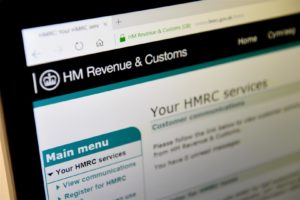 HMRC is calling on people to stay vigilant in the fight against fraudsters, who are using email and text messages to scam them out of their savings.
HMRC is calling on people to stay vigilant in the fight against fraudsters, who are using email and text messages to scam them out of their savings.
The tax authority is currently processing tax refunds after the end of the 2017 to 2018 tax year. However, criminals are taking advantage of this by sending out scam emails and SMS-messages to trick the public into thinking they have received a tax rebate so they hand over their account and personal details.
Treasury Minister Mel Stride MP, the Financial Secretary to the Treasury, said: “HMRC only informs you about tax refunds through the post or through your pay via your employer. All emails, text messages, or voicemail messages saying you have a tax refund are a scam. Do not click on any links in these messages, and forward them to HMRC’s phishing email address and phone number.
“We know that criminals will try and use events like the end of the financial year, the self-assessment deadline, and the issuing of tax refunds to target the public and attempt to get them to reveal their personal data. It is important to be alert to the danger.”
Many of these fraudulent emails and texts include links which take the user to dubious websites where their information can be stolen. These sites are a focus of HMRC’s efforts to tackle fraud. In March 2018, it requested 2,672 phishing websites be taken down and received 84,549 phishing reports. This kind of phishing is expected to continue in the coming months as genuine tax refunds are issued.
Income Tax for 6 April 2017 to 5 April 2018 will be calculated over the coming months and anyone owed a genuine tax rebate will receive a tax calculation letter by post between June and October.
If you haven’t paid the right amount at the end of the tax year, HMRC will post you a tax calculation. This can be a P800 or a Simple Assessment letter. If you have paid too much tax, the letter will explain how you can get your refund paid to you. If you have not paid enough tax, the letter will tell you how much you owe and how you can pay.
HMRC advises customers to:
- recognise the signs – genuine organisations like banks and HMRC will never contact you out of the blue to ask for your PIN, password or bank details
- stay safe – do not give out private information, reply to text messages, download attachments or click on links in emails you weren’t expecting
- take action – forward suspicious emails claiming to be from HMRC to phishing@hmrc.gsi.gov.uk and texts to 60599, or contact Action Fraud on 0300 123 2040 to report any suspicious calls or use its online fraud reporting tool
- check GOV.UK for information on how to avoid and report scams and recognise genuine HMRC contact
- if you think you have received an HMRC-related phishing/bogus email or text message, you can check it against the examples shown in this guide
HMRC has taken a range of action to protect the public from scams, including:
- from April 2017 to March 2018, reported 14,631 malicious websites for takedown
- from April 2017 to March 2018, received 771,227 customer phishing email/SMS referrals
- from April 2017 to March 2018, received 1.1 million direct visits to HMRC security pages on GOV.UK
- implemented SMS firewalling – working with industry to deliver a pilot to reduce SMS abuse, resulting in a 90% decrease in reported abuse of protected HMRC SMS tags
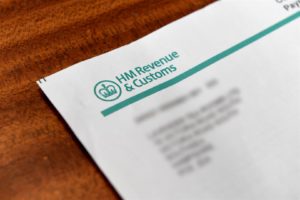 Powers to ensure online sellers pay the right tax, and don’t leave law-abiding high street and online businesses at a disadvantage, have come into force.
Powers to ensure online sellers pay the right tax, and don’t leave law-abiding high street and online businesses at a disadvantage, have come into force.
The internet has revolutionised the way people shop and helped many businesses to sell their products across the UK. Online marketplaces can help those who sell through their platforms to understand the tax rules and therefore avoid fines from HM Revenue & Customs (HMRC). And, indeed, they have the responsibility to make sure that fraud does not happen on their watch.
These new rules, which were first announced by the Chancellor at Autumn Budget 2017, strengthen powers to make online marketplaces accountable for VAT fraud committed by online sellers on their platforms.
These powers are known by the term joint-and-several liability (JSL) for online marketplaces.
If sellers based in the UK or overseas are not paying the correct VAT when selling in the UK, and are not removed from the site following the issue of a notice by HMRC to the marketplace, HMRC will pursue the marketplaces themselves for any future unpaid tax by those sellers.
For any sales made from today onwards, the rules also make online marketplaces liable for VAT where they knew or should have known that an overseas online seller should have been VAT-registered, but was not.
This sends a clear message that businesses in the UK and overseas, online and on the high street, must all play by the same rules, protecting traditional high street and legitimate online sellers who pay what they owe.
If someone is committing VAT fraud, you can report them anonymously either online or phoning the HMRC fraud hotline on 0800 788 887.
Marketplaces must now also make sure sellers using their platforms display a valid VAT number on the site, when they are given one. This will help buyers make an informed choice about buying goods from a VAT-registered businesses with confidence.
Financial Secretary to the Treasury, Mel Stride, said: “Whilst the honest majority pay what they owe, some businesses that sell goods online to UK shoppers are failing to pay the correct amount of VAT.
“This behaviour unfairly undercuts businesses trading in the UK that play by the rules, abuses the trust of buyers, and deprives the government of significant revenue that funds vital public services.
“We are clear that everyone must pay their fair share of tax, and tackling tax evasion in all its forms is a top priority for the government.”
The UK has led the way in tackling this type of fraud and, in September 2016, was the first country to introduce tough powers to tackle VAT evasion by overseas sellers – these have already gone a long way to remove over a thousand non-compliant overseas businesses from selling goods online in the UK and to motivate tens of thousands of overseas sellers to register for VAT.
The new rules go further to strengthen and develop our operational response to online VAT fraud and error from both UK and overseas businesses.
As well as this, businesses can apply to register for the Fulfilment House Due Diligence Scheme from 1 April 2018. This scheme, which was first announced at Budget 2016, will require businesses that store imported goods for, or on behalf of, overseas sellers from outside the EU to keep certain records and perform certain checks on the goods they are storing.
Taken together, the respective packages of measures announced at Budget 2016 and Autumn Budget 2017 will help protect around £1 billion of tax revenue by 2023, and further enhance HMRC’s ability to ensure everyone is paying their fair share.
 HM Revenue and Customs has today revealed that just over three million customers are yet to complete their 2016 to 2017 returns with just one week to go before the 31 January deadline.
HM Revenue and Customs has today revealed that just over three million customers are yet to complete their 2016 to 2017 returns with just one week to go before the 31 January deadline.
As of today, around eight million people have filed their Self Assessment return for 2016 to 2017. HMRC is reminding customers that if they send your tax return late, they will receive a £100 penalty – even if they do not owe any tax. The longer they delay, the more they will have to pay.
Angela MacDonald, HMRC Director General of Customer Services, said: “The 7-day countdown to 31 January has now begun. Put a stop to that niggling feeling and do your Self Assessment now. Our helpful online services offer support and advice, so you can complete your tax return quicker than you think.”
The deadline for sending 2016 to 2017 Self Assessment tax returns to HMRC and paying any tax owed is 31 January 2018.
 Our office will close at midday on December 22nd 2017 and will re-open on January 2nd 2018. We wish all our clients a very Merry Christmas and a Happy New Year.
Our office will close at midday on December 22nd 2017 and will re-open on January 2nd 2018. We wish all our clients a very Merry Christmas and a Happy New Year.
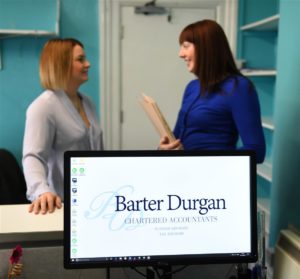 We have a full time vacancy in our practice for a trainee accountant. No experience is necessary but an enthusiasm for learning and an interest in finance is essential. A full study package will be provided.
We have a full time vacancy in our practice for a trainee accountant. No experience is necessary but an enthusiasm for learning and an interest in finance is essential. A full study package will be provided.
Our office is a busy, friendly office, based in the heart Southsea.
As a general practice, the role will include all aspects of accountancy such as preparation of accounts for sole traders, partnerships and limited companies, bookkeeping, VAT returns and taxation, providing relevant work experience to compliment the knowledge required during study.
Applications from both college leavers and graduates are welcome.
Please send your CV to John Pache. We look forward to hearing from you.
 At Barter Durgan we understand that tax is a little word with big implications. That is why we work hard to give you the best possible advice and strategies to make tax altogether less taxing.
At Barter Durgan we understand that tax is a little word with big implications. That is why we work hard to give you the best possible advice and strategies to make tax altogether less taxing.
A tax investigation could cost you money even if you’ve done nothing wrong. HMRC are using sophisticated software to target individuals. The very thought of an HMRC enquiry can be daunting but in the event that you are chosen for investigation we can help you at every step of the process.
Early professional representation is an essential part of your defence, this takes time, expense and flexibility on our behalf.
Just as you take out cover to protect against the eventuality of a possible motoring accident or potential damage to the contents of your home or business, this service protects you from the costs that arise in dealing with your HMRC enquiry.
Our Tax Investigation service in partnership with Croner Taxwise also includes:
• Access to experienced solicitors who will advise you on all areas of law including contract, property and landlord & tenant.
• A Health & Safety advice line. Do you really know what the responsibilities and implications are?
• Employment Law advice helping you to manage any potential employment issues.
Talk to us today about our professional cover against the threat of costly Tax and VAT investigations. You can contact us by email or by phone on 02392 738311.
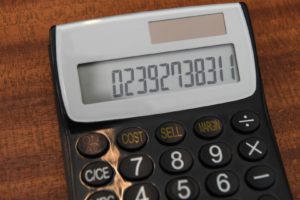 Millions of parents can now pre-register for the government’s new childcare offers, with the launch of a new Childcare Choices government website.
Millions of parents can now pre-register for the government’s new childcare offers, with the launch of a new Childcare Choices government website.
The introduction of the government’s Tax-Free Childcare scheme will begin on 28 April, for parents of the youngest children. It will be gradually rolled out over 2017 – cutting childcare costs for working families across the UK by up to £2,000 per child per year, or £4,000 for disabled children.
On top of this, from September this year parents of three and four year old children living in England will be able to apply for a new 30 hours free childcare offer, worth around £5,000 per child.
The Childcare Choices website includes a Childcare Calculator for parents to compare all the government’s childcare offers and check what works best for their families.
Through the site parents can also pre-register for email alerts that will notify them when they can apply, as well as providing details of existing government childcare offers.
Chief Secretary to the Treasury, David Gauke, said: “This Government is on the side of working families and our childcare support will cut thousands of pounds off bills for millions of households, as well as supporting parents to return to or remain in work. The new Childcare Choices website provides busy families with options that suit their needs, so they can clearly see which childcare offer works best for them. For the first time, we have brought all the childcare options together to make the process easier and simpler for families and childcare providers.”
Two million working families will be eligible for Tax-Free Childcare. It will be gradually rolled out, with parents of children under two invited to enter the scheme first. By the end of the year, all eligible parents will be able to receive government top-ups of £2 for every £8 that a parent pays into their Tax-Free Childcare account. This will be open to all working parents across the UK with children under 12, or under 17 if disabled.
The new 30 hours free childcare offer for working parents of three and four year olds in England doubles the current 15 hours of free childcare currently available, saving eligible working families up to £5,000 a year.
Parents will be able to apply for Tax-Free Childcare and the 30 hours offer in one go through the government’s new digital childcare service. Eligible parents can benefit from both Tax-free Childcare and 30 hours free childcare at the same time.
Glamorous holidays abroad, luxury watches and Friday nights out feature in HMRC’s latest list of the most outlandish expenses which customers tried to claim back on their 2014-15 Self Assessment returns. With a week to go until the 31 January deadline, HMRC is releasing the strangest expenses to ensure other customers don’t make similar claims:
- Holiday flights to the Caribbean
- Luxury watches as Christmas gifts for staff – from a company with no employees
- International flights for dental treatment ahead of business meetings
- Pet food for a Shih Tzu ‘guard dog’
- Armani jeans as protective clothing for painter and decorator
- Cost of regular Friday night ‘bonding sessions’ – running into thousands of pounds.
- Underwear – for personal use
- A garden shed for private use – plus the costs of the space it takes up in the garden
- Betting slips
- Caravan rental for the Easter weekend.
Ruth Owen, HMRC Director General of Customer Services, said: “Year after year we receive a number of ludicrous expense claims, ranging from international holiday flights to expensive designer clothing, which we would never uphold. Why should the honest taxpayer pick up the bill for others? HMRC will only accept those claims which are genuine, such as legitimate travel expenses or the cost of tools for the job.
“The seven day countdown to the 31 January Self Assessment deadline is now on. Don’t delay and risk a penalty, the time to submit your tax return is now.”
Each year HMRC receives a number of unusual excuses from Self Assessment customers who didn’t complete their tax return on time.
These include:
- “My tax return was on my yacht…which caught fire”
- “A wasp in my car caused me to have an accident and my tax return, which was inside, was destroyed”
- “My wife helps me with my tax return, but she had a headache for ten days”
- “My dog ate my tax return…and all of the reminders”
- “I couldn’t complete my tax return, because my husband left me and took our accountant with him. I am currently trying to find a new accountant”
- “My child scribbled all over the tax return, so I wasn’t able to send it back”
- “I work for myself, but a colleague borrowed my tax return to photocopy it and lost it”
- “My husband told me the deadline was the 31 March”
- “My internet connection failed”
- “The postman doesn’t deliver to my house”
The reasons above were all used in unsuccessful appeals against HMRC penalties for late returns.
“Ruth Owen, HMRC Director General of Customer Services, said: “Blaming the postman, arguing with family members and pesky insects – it’s easy to see that some excuses for not completing a tax return on time can be more questionable than others. Luckily, it’s only a small minority who chance their arm.
“But there will always be help and support available for those who have a genuine excuse for not submitting their return on time. If you think you might miss the 31 January deadline, get in touch with us now – the earlier we’re contacted, the better.”
The deadline for sending 2015-16 Self Assessment tax returns to HMRC, and paying any tax owed, is 31 January 2017.
Self Assessment customers can now also submit their return via their Personal Tax Account, it takes five minutes to sign up for an account: www.gov.uk/personal-tax-account

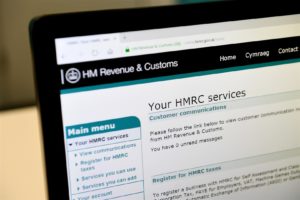 Three million of the smallest businesses and landlords will be able to move to the new digital system for keeping tax records at a pace that is right for them, Ministers announced today as they set out the next steps for the Finance Bill.
Three million of the smallest businesses and landlords will be able to move to the new digital system for keeping tax records at a pace that is right for them, Ministers announced today as they set out the next steps for the Finance Bill.


